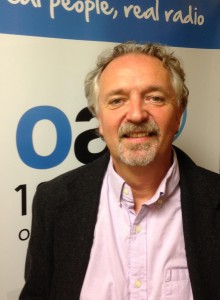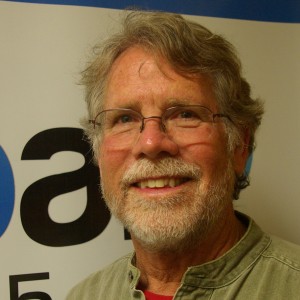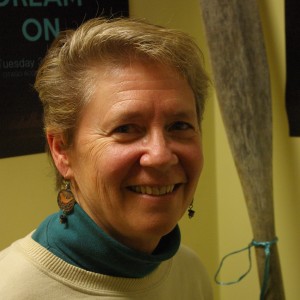Inaction is failure
Andy Read describes wicked problems as the basis of the situation of much of marine mammal conservation globally. But, he says, the wickedness of problems is no excuse for standing by while species go extinct.
Dr Andy Read is the Stephen Toth Professor of Marine Biology at the Duke University Marine Laboratory, in Beaufort, NC, USA. He is interested in the life history and population dynamics of threatened and endangered species, the application of spatial analysis to marine ecosystems, the intersection of oceanography and foraging ecology and the development of new approaches to conservation.
Trying to understand patterns and processes in an environment you can’t see…this mysterious world that exists in three dimensions. I found that fascinating, and still do.
Climate change is felt most keenly at the poles, we can work there to understand over shorter time periods ecological changes…as a signal of what’s coming in other places, we should be very concerned.
Wicked problems are complex, difficult to characterise, you don’t know how to intervene and if you do you don’t know if you’ve been successful or not – we have lots of those.
Tricky conservation problems keep you up at night – how to balance the needs of social justice and feeding 60 million desperately poor, with the ecological needs of 80 dolphins who are the last of their species.
Truly wicked problems are ones that don’t have answers, if they did they wouldn’t be wicked.
There are no technology solutions to wicked problems
So we’re concerned about the viability of the Mekong river dolphins, but if you think about the problem we need to solve, it’s food security for 60 million desperately poor people living alongside the river.
(We look for) strategies that benefit human communities and are as least damaging as possible to the environment
There are no solutions, just good or bad bad options
The conservation community was afraid of action, and we lost an entirely family of mammals (the baiji or Chinese river dolphin)
The more each of us thinks about how each of our actions impacts the sustaining systems, the better off we’ll be. We have to do this all the time, and it’s a challenge as we’ve evolved to be deliberately not good at making connections.
There is something innate about being human that we appreciate the complexity of the natural world – when we simplify it as a result of careless inactions it becomes a less beautiful place.
Conservation is a normative discipline, we believe that the loss of biodiversity is a bad thing. We should do everything we can to minimise that loss of biodiversity caused by human activity and to restore it where we can. In way, yes I’m an activist, but I feel all people working in conservation are activists – it’s a normative discipline and we accept that part of our science.
Dr Read was in Dunedin as a Plenary Speaker at the Biennial Conference of the Marine Mammals Society. His plenary talk was titled “Conservation of marine mammals in the twenty-first century: challenges and opportunities”
This is the third in the Sustainable Lens #whaleofasummer series recorded during the conference.



